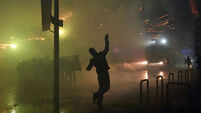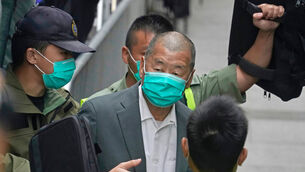Italy: Prodi confident, Berlusconi belligerent
A confident Romano Prodi insisted yesterday that his centre-left coalition’s Italian election victory was on solid ground, but Premier Silvio Berlusconi called the vote fraudulent and demanded the result be overturned.
Prodi, an economist and former European Commission president, won by a narrow margin in this week’s parliamentary election. But he heads a potentially divided coalition that relies on parties ranging from pro-Vatican moderates to Communists.














